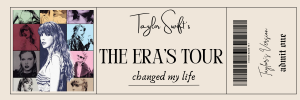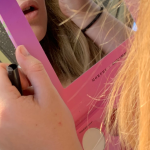Plenty of university students have done an internship. They’re a great way to learn and get a taste of what work is like in your field. You might shadow an event manager or assist in an environmental science sample collection. Interning helps you learn practical skills that you can then take to job interviews. Internships are designed to complement your studies, and some are even paid roles that can transition to permanent positions.
Many students are required to do internships for credit points in their degrees. This might take the form of a nursing or teaching placement, or a supervised WIL subject. Other students do extracurricular internships that their degree does not offer to get an extra leg-up of professional experience or work in an industry they are not currently qualified for.
Overall, internships are pretty good.
Until they’re not.
Picture this, you’re a business graduate looking to apply for an internship to get experience in digital marketing and advertising. You find a company that’s looking for someone and send through your resume. When they get back to you you find out that:
- It’s 2-3 full days a week
- It’s unpaid
- You are expected to have the skills that you wanted to refine in the internship
Despite it looking daunting, you accept the internship and show up to your first day. After a few hours you realise:
- The internship-facilitator isn’t supervising you
- You’re not being taught anything, just expected to know
- You’re doing the same work as the other people in the office
- They’re getting paid, and you’re not
All of these are major red flags for interning.
But, how are students meant to know what’s fair and what isn’t? Where’s the guidebook?
The Fairwork Ombudsman has a lot to say about unpaid work. Some kinds of unpaid work is legal and others are not, and it’s hard to tell the difference sometimes.
The Ombudsman defines unpaid internships as, “when a person works for a business to gain experience in a particular occupation or industry. These arrangements can be a valuable way for prospective employees to make the transition from study to work or explore a new career path. Sometimes these arrangements span several months and can lead to ongoing employment. An unpaid work experience arrangement or unpaid internship can be lawful if it is a vocational placement (see section above) or if there is no employment relationship found to exist.”
To determine whether an employment relationship exists, there are five main questions to ask of the internship:
What is the nature and purpose of the arrangement?
Is the purpose to provide a learning experience or to get the intern to do ordinary business work? If your internship is mostly productive work that helps the business, rather than a learning or training experience, it is likely to be an employment relationship.
How long is the arrangement for?
The longer an internship period, the more likely there is an employment relationship. Remember that even short periods could constitute an employment relationship; if you work there for a significant period to the business, especially full time, be wary.
How significant is the arrangement for the business?
Is the work the intern is doing the same work that paid employees do? Is it important to the business that the work the intern is doing gets done? If the work is needed for the business significantly more than the intern doing the work, it is likely an employment relationship.
What are the intern’s obligations?
Interns might do some productive work to aid their learning, but roles should be primarily observational. The expectation to perform productive work is only incidental, and should be a valuable learning experience for the intern rather than a value to the business.
Who benefits?
The main benefit of an internship should be for the intern. If the business benefits the most from the work that the intern is doing in their role, it is likely an employment relationship exists.
 Overall, the main things to remember is that you shouldn’t be doing ‘productive’ work, the internship should benefit you and you should receive a meaningful learning experience or skill development.
Overall, the main things to remember is that you shouldn’t be doing ‘productive’ work, the internship should benefit you and you should receive a meaningful learning experience or skill development.
Productive work might take the form of emailing clients or preparing a report or running a social media account. A key tell is if you are completing work that the business charges money for, that’s very productive work because it drives money into the business. If you are currently in that situation, take a moment to consider if you are genuinely having a good learning experience or if you are completing unpaid labour.
Another red flag is the ‘potential’ to get paid. Sometimes internships dangle a carrot in front of prospective interns, telling them that they might get paid if they impress the business enough with their work. This may be true, but an internship is not a job offer, and there is no security attached to the statement. It may end up being a ploy to make you work harder for a job that doesn’t actually exist in the business.
Unpaid internships are rife in the student scene. This is usually because students are at the beginning of their careers, they’re naive about fair work laws and they’re eager to get experience no matter the cost. Often unlawful, unpaid internships will show up on student job boards, and they might seem wonderful because the business offers things that sound good, but cannot replace payment. Do not work for free coffee or yoga classes, those are not fair compensation for your work. When reading an advertisement for an internship opportunity, ask yourself the above questions.
Some questions to ask when going into an internship interview:
- What kind of work could I expect to be doing on an average internship day?
- How long will this internship go for?
- How many days a week do you require for the internship?
- What have previous interns done during their internship?
- Why did you advertise the position?
- Tell me a little bit about your background and what you are hoping to teach during the internship?
- What technical skills can I expect to learn?
- Is there any opportunity for ongoing employment after the internship is over?
- What are you expecting of me during the internship period?
- Are you open to providing a reference after the internship?
- What projects are you working on at the moment that I could shadow?
A good internship will have answers to these questions, because they’ve considered how to manage an intern effectively. If an interviewer can’t tell you what you’re going to learn, the parameters of the internship and the specifics about it, most likely they view the internship as free labour disguised as an internship.
Internships are a good opportunity, but they come with plenty of pitfalls. Dodgy internships are quite common in the marketing, creative industries and communications area, but also can be found in legal areas, health practices and more. Look out for yourself and know your worth as a worker before you sign on to an unpaid internship. Read all of the arrangement material carefully and don’t be afraid to speak up or ask questions if something doesn’t seem right.
Note: All of the above points contribute to the reason that Glass Media does not accept any requests for internships. We don’t have the budget to pay an intern, and we don’t expect an editorial intern to complete work for us for free. Although working for a magazine may be good experience for people, the work any student intern would do would benefit Glass Media much more than it would benefit them. Also, as a student-led media organisation, we couldn’t give you an adequate learning experience because we are students too, and we’re still learning ourselves.








